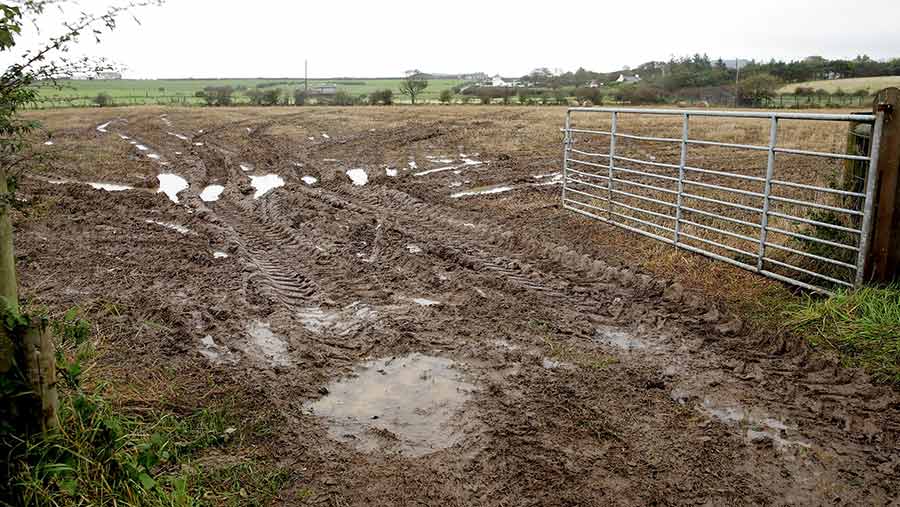‘Reasonable excuse’ clause to allow slurry spreading in NI
 © Cliff Donaldson
© Cliff Donaldson Farmers in Northern Ireland have been advised they can spread slurry during the approaching closed period due to the exceptionally wet weather this year, but it must be a last resort.
The Ulster Farmers’ Union (UFU) said if farmers cannot spread their slurry before 15 October they can employ the ‘reasonable excuse’ clause.
It said farmers do not have to notify the Department for Agriculture, Energy and Rural Affairs (Daera) or the Northern Ireland Environment Agency (NIEA) before spreading during the closed period but detailed records must be kept.
See also: 13 tips to avoid poisonous gas when mixing slurry
These should record how the slurry was managed before the closed period, the weather and ground conditions, how much storage they have, and that other options have been exhausted.
Impossible situation
The UFU has created a NIEA-approved template that farmers can use to record this information, and UFU staff are available to help. This must be available for inspection by the NIEA.
“No farmer wants to risk their basic payment by spreading slurry during the closed period,” said UFU president Barclay Bell.
“However, the current ground and weather conditions are making compliance impossible and some farmers may be left with no other choice.
“It is better to spread slurry during the closed period under this clause at a time when conditions are more favourable than rush and risk a farm accident or pollution,” he added.
However, farmers should take extra precautions to prevent accidental pollution so as not to give the EU Commission any excuse to impose more legislation.
“Being able to show we acted responsibly in these difficult conditions is our best defence,” he added.
Create adequate storage
Daera said it was acutely aware of the significant impact the recent weather conditions have had on the agricultural sector.
It added it recognised that the wet conditions had resulted in the early housing of animals, and delaying silage and crop harvesting and the subsequent emptying of slurry tanks.
“Farmers should always seek to empty tanks and middens to maximise storage capacity as winter approaches.
“If slurry must be spread during [the closed period], evidence should be available to demonstrate to NIEA that all reasonable steps were taken to manage the situation, and that there was no alternative,” the spokesperson said.
“If slurry has to be spread under exceptional circumstances, it should be on low-risk land and all usual spreading conditions followed. Tanks should not be emptied.
“Only enough slurry should be spread to leave adequate storage for the remainder to the closed period.”
To use the reasonable excuse clause:
- NIEA and Daera do not need to be notified if slurry must be spread.
- There is no deadline for the spreading of slurry under the clause of ‘reasonable excuse’.
- Keep records, such as pictures, videos of weather and ground conditions, rainfall data, and be able to produce them if inspected by NIEA. The NIEA-approved template is available from the UFU HQ or local group offices.
- The minimum legal requirements for slurry storage on farm (26 weeks for pigs and poultry and 22 weeks for other enterprises) must be met.
- Be able to show that slurry has been properly managed outside the closed period and been spread appropriately.
- Ensure clean storm water is diverted away from slurry tanks.
- Ensure all other alternatives such as renting extra storage space or using straw bedding have been exhausted.
- When spreading, take steps to protect against water pollution, for example by increasing the distance spread from water or spreading on flatter fields.
- Spread the minimum necessary to prove sufficient capacity, to manage it until the end of the closed period.
